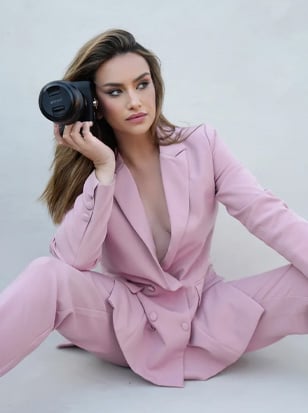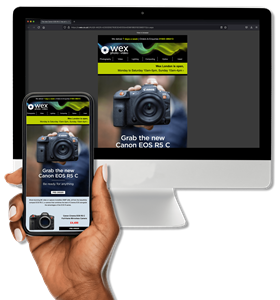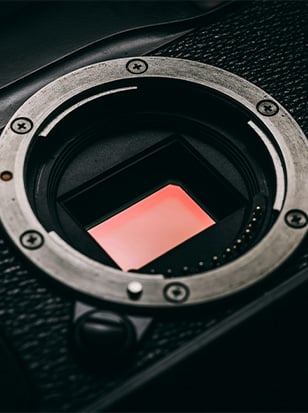
Yolanda Kingdon
- Job title: Portrait Photographer
- Website: yolandakingdon.co.uk
- Instagram: yolandakingdon
- Related jobs: Newborn photography, boudoir photography, wedding photography, commercial Photography, event photography
Yolanda Kingdon is a professional portrait photographer based in South Wales. With 18 years of experience in the industry, Yolanda has built her business from the ground up and gained worldwide recognition for her signature style. But it wasn’t all as simple as you might think. In fact, becoming a photographer wasn’t even on her radar to begin with. From childhood dreams of becoming a singer, to studying to become a psychologist, photography was nowhere to be seen.
I was lucky enough to catch up with Yolanda and ask about her photographic journey as a portrait photographer and how she shaped her career through trial and error and many tough decisions. If you aspire to photograph portrait professionally, Yolanda has some insight that may be useful to you...
Leo White; Have you always wanted to be a photographer?
Yolanda Kingdon: Not at all. When I was younger, I was a classically trained singer and other than singing, my dream was to be a psychologist.
LW: What was it that sparked your interest in photography?
YL: Still wanting to pursue my dreams of becoming a psychologist, I chose psychology at college along with English literature. We were able to take a creative subject in addition to our main subjects, and I chose to do makeup.
Early into the makeup course, I was told I had a natural talent and encouraged to create a portfolio. And this was when I first started taking photos of my friends and family to showcase my makeup. I took joy in creatively lighting my models using a pair of heated lamps my Dad found at a car boot sale, and using props and mirrors to highlight the makeup.
I would upload the photos to MySpace and despite the equipment I was using, it became clear that the interest I was receiving was for the photos rather than specifically the makeup, as I would have people asking me about photo shoots and how much I charge.
View this post on Instagram
LW: How did you get to where you are today and how did you fund your photographic pursuits?
YL: I was only 17 and doing my A levels at college when this passion began. During that time my sister was born and I needed to help raise her. Along with this and continuing to build my portfolio, I worked as a concessions manager at TopShop in Cardiff. It was all very overwhelming; something had to change.
The defining moment came when I had yet another stressful shift, but this time was pushed to my limit. I had to decide what I wanted to do and I chose photography over retail.
From there, I heavily invested my free time in photography and making contacts. I started uploading to other platforms outside of MySpace, such as Facebook and the website Model Mayhem.
At the time, Model Mayhem was a free online community space for all types of creatives from makeup artists, stylists, photographers, videographers and hair stylists. I was connected with the UK creative industry and offered photoshoots in London, Birmingham and Manchester. Naturally, the more shoots I did, the more connections I made and before I knew it, I was travelling to Belgium to work for a photography agency.
LW: How did you make money?
YL: Having left the financial security of my job in retail, I had to have a plan that allowed for photography and helping to raise my sister. Thanks to the connections I made from Model Mayhem etc., I was able to work weekends for the photography agency and earn up to £2000 in two days rather than a month and still have time to look at my sister and do what I wanted.
At first, I marketed my services as a makeover photoshoot experience to help boost women’s confidence. I’d shoot makeover, bridal and boudoir sessions. Through these sessions and making connections with my clients, I was later asked if I would take photographs of their newborns or when they were pregnant. All of which broadened the services I could provide.
I was 21 when I had my first child and this work pattern still allowed me to juggle my business and my newborn. It’s important to note that I was the only person in my local area doing this type of job, let alone photography. And for me, the success of my business somewhat slowed when other women saw that I was a working mum and still able to make money. Other people began photographing in my area and offering photoshoots for £20-30, which I couldn’t compete with. Because of this, I lost out on a lot of work and income. It wasn’t until a few years later that persistence and growing reputation rekindled my financial success.
View this post on Instagram
LW: After 18 years as a photographer, has the way you charge clients changed?
YL: Unlike others who increase prices for additional prints or services, I’ve always tried to provide a complete package. My clients are essentially buying an experience. For example, you can purchase a simple fixed fee (~£400-700) portraiture package that includes final images, outfit changes and some content creation. Whereas for weddings, the price can vary from £3000-6000 because of the sheer workload i.e., working in the lead-up to the wedding, working on the day and then editing for anywhere between 4-12 weeks.
LW: Have you had any proud or notable moments in your career?
YL: I have a lot of proud moments. I feel pride when clients are happy and grateful for the images I have taken of them. And I feel pride when I am given the opportunity to photograph intimate moments like mothers giving birth.
But I am most proud of the past 18 years of work. I started when I was 17, I had my first child at 21 (now a mother of four children), I am a woman working in a male-dominated industry and have been able to excel and build a successful business. Furthermore, receiving recognition from Sony and being invited to be a Sony European Imaging Creator was probably my proudest moment and validated all the effort I have put in and the decisions I have made.
LW: Finally, do you have any advice for aspiring portrait photographers?
- Know your worth and be strict with your payments. Difficult clients can cause unexpected levels of pressure that can develop into something worse. For me, I experienced an uncomfortable level of anxiety. But I overcame it by reminding myself of my skills and respecting my abilities.
- Identify and nurture your photographic niche. It’s important to recognise and understand trends, and be present on social media but try not to let it too heavily influence your own style.
- As a newcomer, you should be creative with the equipment you have. You don’t need to have the best camera, lenses or lighting. It is better to get familiar with the equipment you have and be creative. The camera is just a tool at the end of the day. The talent lies with the user.
View this post on Instagram
About the Author
Leo White has been part of the Wex Photo Video team since 2018, taking on roles from the contact centre to the product setup team. Holding both a BA and an MA in photography, Leo brings a wealth of expertise he’s always ready to share.
Sign up for our newsletter today!
- Subscribe for exclusive discounts and special offers
- Receive our monthly content roundups
- Get the latest news and know-how from our experts




